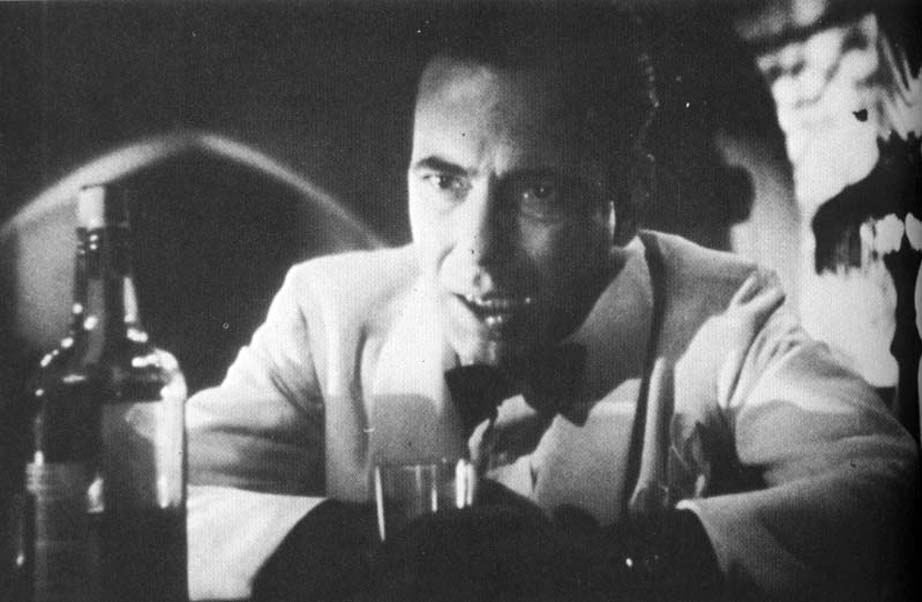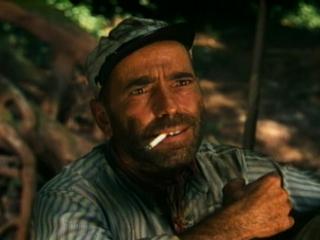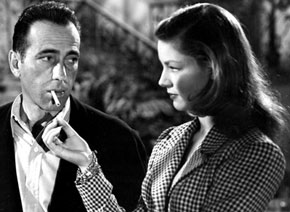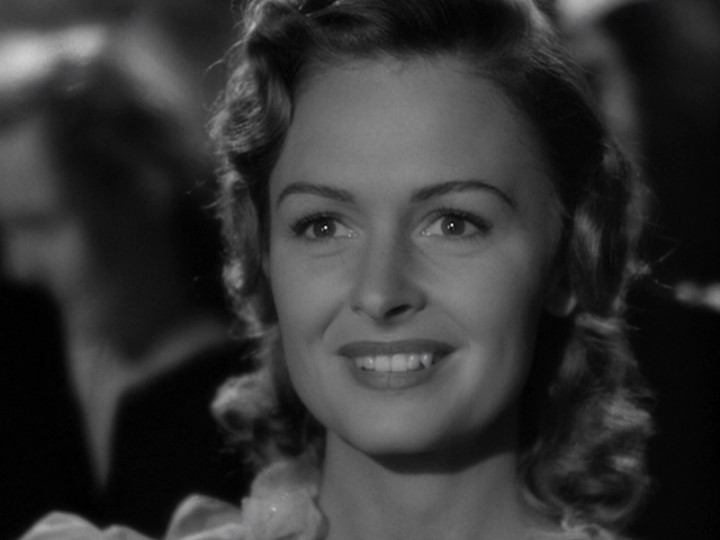In case you didn't already know, December is the month of the Bogie blogathon here at Forever Classics. In conjunction, all of the My Favorite Films post are going to be devoted to my top three picks from Bogie's filmography:
Casablanca,
To Have and Have Not and
The African Queen, in that order (I won't be writing on The Maltese Falcon as
it was featured as the noir of the month in April). Today's post is focusing on my favorite film of all time-
Casablanca.
Released by Warner Brothers in 1942, the film tells the story of American expatriate and cafe owner Rick Blaine (Bogie) living in unoccupied Africa during World War II. Unexpected complications arise when Rick's former lover (Ingrid Bergman) and her Resistance leader husband (Paul Henreid) arrive at Rick's cafe and ask him to help them flee the Nazi's.
Casablanca is considered by many (including myself) to be the greatest film of all time, and it's obvious why: it's a perfect film with a wonderful cast, screenplay, score and director, all of which I will discuss more in depth later on.
 |
| "Of all the gin joints, in all the towns, in all the world, she walks into mine." |
One of the many things that make
Casablanca so wonderful is that it contains some of the greatest performances in cinematic history. This is my favorite Bogie's film, tied with
The African Queen. I love that he is able to play the cynical tough guy (which he was frequently type-cast as) but in the end still possess the emotions of a man torn between, in Claude Rain's words, love and virtue. (And, for the record, no one will ever be able to say "We'll always have Paris" the way Bogie did.)
Ingrid Bergman's performance as Ilsa Lund is her most popular role, and I consider it to be her best. Ever since my first viewing of
Casablanca, I've always taken note in her facial expressions. In particular, when her character is conflicted, she seems to capture the scene perfectly. This is because she herself was confused during filming: Just like Ilsa was torn between helping her husband or staying with the man she really loved, Bergman was clueless about who she would end up with since the screenwriters did not finish writing the final scene until the day it was filmed. Since this is her most remembered film, it's quite astonishing that her Oscar nomination in 1943 was instead for
For Whom the Bell Tolls.
It's amazing to look at the chemistry between Humphrey Bogart and Ingrid Bergman. They did so well in their scenes together, which is odd because they rarely spoke outside of filming, on account of Bogie's wife at the time who constantly accused them of having an affair. The American Film Institute ranks it as the most passionate film ever made, as do I. One great example is the scene in which Ilsa comes to Rick's apartment to ask him for the letters of transit and admits she still loves him. (You can watch that scene
here.)
Despite the popularity of
Casablanca, Paul Henreid was a very underrated actor. While I don't think he was as great as the leading actors, his performance is still memorable since he plays one of the most important characters in the film. I particularly like the scene in the bar when Laszlo tells Rick he knows he's in love with Ilsa and also persuades him to give them the letters of transit. The supporting cast consists of Claude Rains, Peter Lorre, Sydney Greenstreet and S.Z. Sakall, who all, like Henreid, are extremely underrated. Even in supporting roles, they each add a lot to the film. For example, Peter Lorre has maybe eight minutes of screen time and he's in one of the most vital roles.
"We'll always have Paris." "Here's looking at you, kid." "Round up the usual suspects." "Play it Sam. Play, 'As Time Goes By'." Aside from the cast, the most recognizable thing about
Casablanca is the screenplay. Even if someone hasn't seen it, the previous quotes are still vaguely familiar. It's a wonder that the screenplay turned out to be so great, considering the difficult time that brothers Julius and Phillip Epstein had writing it. The script was adapted from the play
Everybody Comes to Rick by Joan Alison, but the title was changed to attract more viewers, similar to the film
Algiers in 1938.
As I mentioned when discussing Bergman, the ending was rewritten several times to find the scene that best suit the story.Being the romantic that I am, I would have liked Ilsa to stay with Rick, but I strongly agree with what Julius Epstein said in the documentary
You Must Remember This: The Making of Casablanca (which is available on the special edition DVD): the film wouldn't have the legacy it has today if it ended the way most people wanted it to. It shows a man giving up the woman for something he knows is more important, which is why it's so remembered today.
"As Time Goes By", originally released in 1931, is now one of the most well-known songs in film, but it was almost removed from
Casablanca. After filming was complete, composer Max Steiner wanted to replace it with an original song, but, by this time Bergman had cut her hair for her part in
For Whom the Bell Tolls. Scenes could not be re-shot and the song could not be removed since it was such a large part of the film, so "As Time Goes By" (thankfully) stayed.
 |
| And of course Google didn't have the picture I wanted. |
Lastly, I want to discuss Michael Curtiz' direction. Curtiz made several great films including
White Christmas and
Mildred Pierce, but
Casablanca was his masterpiece. Another thing I mentioned about Ingrid Bergman was the closeup shots. It's a remarkable quality, not just with her, but with the film as a whole. For example, the scene when Ilsa comes to Rick's cafe and asks Sam to play "As Time Goes By". Rick, hearing the song, walks over to Sam and he and Ilsa see each other for the first time since she left him in Paris. The way the camera captures their expressions is just perfect. It's one of my favorite scenes in the film.
Overall, I've seen
Casablanca dozens of times and it still continues to amaze me as a film. I'll be re-watching it throughout December and I hope many of you will do the same.












_poster.jpg/220px-To_Have_and_Have_Not_(1944_film)_poster.jpg)















